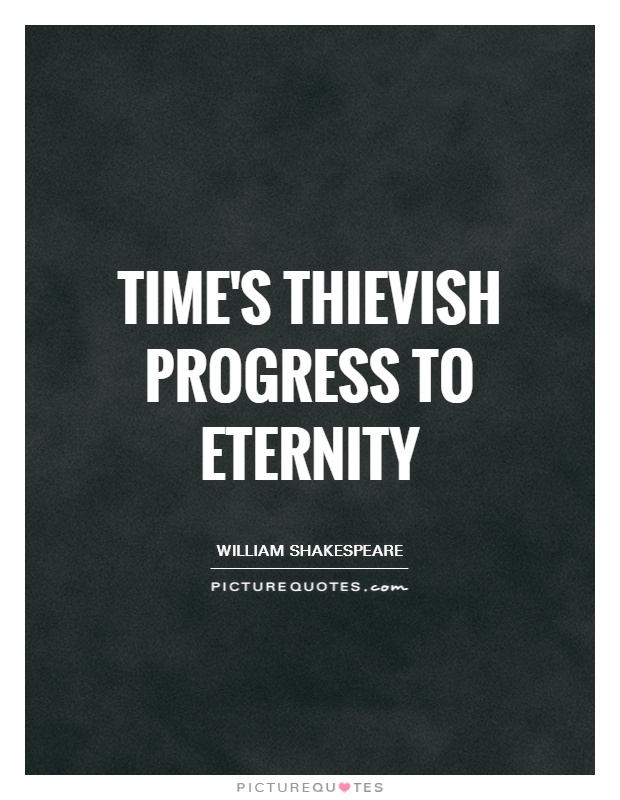Time's thievish progress to eternity

Time's thievish progress to eternity
In William Shakespeare's works, the concept of time is a recurring theme that is often explored in depth. One of the most famous lines that Shakespeare wrote about time is "Time's thievish progress to eternity" from Sonnet 123. This line encapsulates the idea that time is constantly moving forward, stealing moments from us as it marches inexorably towards eternity.Shakespeare often uses the metaphor of time as a thief to convey the idea that time is a force that cannot be stopped or controlled. Just as a thief steals precious possessions, time steals moments from our lives, leaving us with only memories and regrets. This idea is particularly poignant in Sonnet 123, where Shakespeare laments the passing of time and the inevitability of death.
The phrase "Time's thievish progress to eternity" also highlights the fleeting nature of time and the impermanence of life. Shakespeare reminds us that time is always moving forward, never pausing or slowing down. This sense of urgency and transience is a common theme in Shakespeare's works, as he often explores the idea of mortality and the passage of time.
Furthermore, the phrase "Time's thievish progress to eternity" suggests that time is a relentless force that is leading us towards our ultimate fate. In Shakespeare's plays, characters often grapple with the idea of fate and destiny, and the role that time plays in shaping their lives. Time is portrayed as a powerful force that cannot be escaped, no matter how hard we try.
Overall, Shakespeare's exploration of time in his works is complex and multifaceted. The phrase "Time's thievish progress to eternity" captures the essence of Shakespeare's thoughts on time, mortality, and the human experience. It serves as a reminder of the fleeting nature of life and the inevitability of death, urging us to make the most of the time we have before it is stolen away from us.












 Friendship Quotes
Friendship Quotes Love Quotes
Love Quotes Life Quotes
Life Quotes Funny Quotes
Funny Quotes Motivational Quotes
Motivational Quotes Inspirational Quotes
Inspirational Quotes